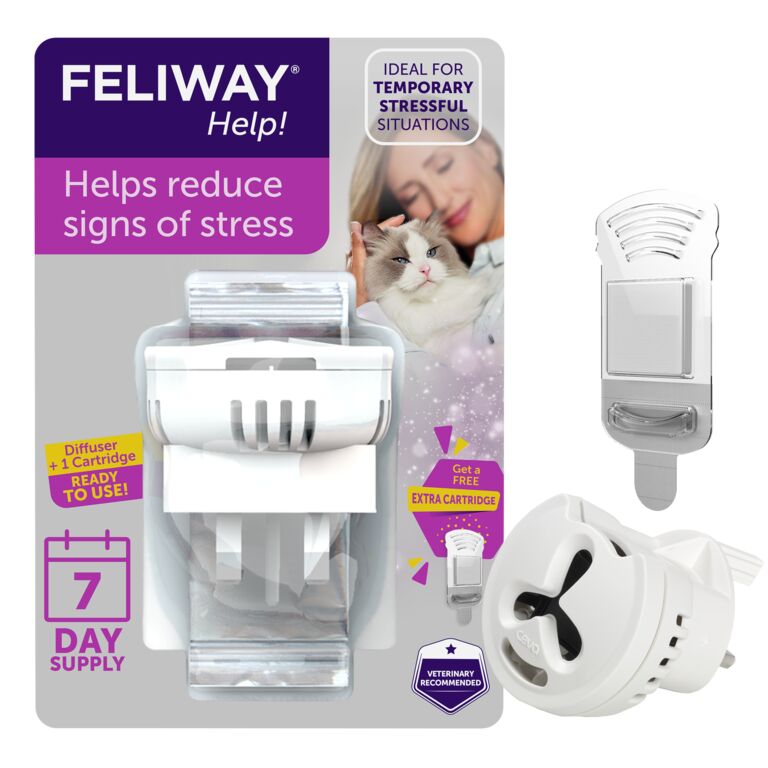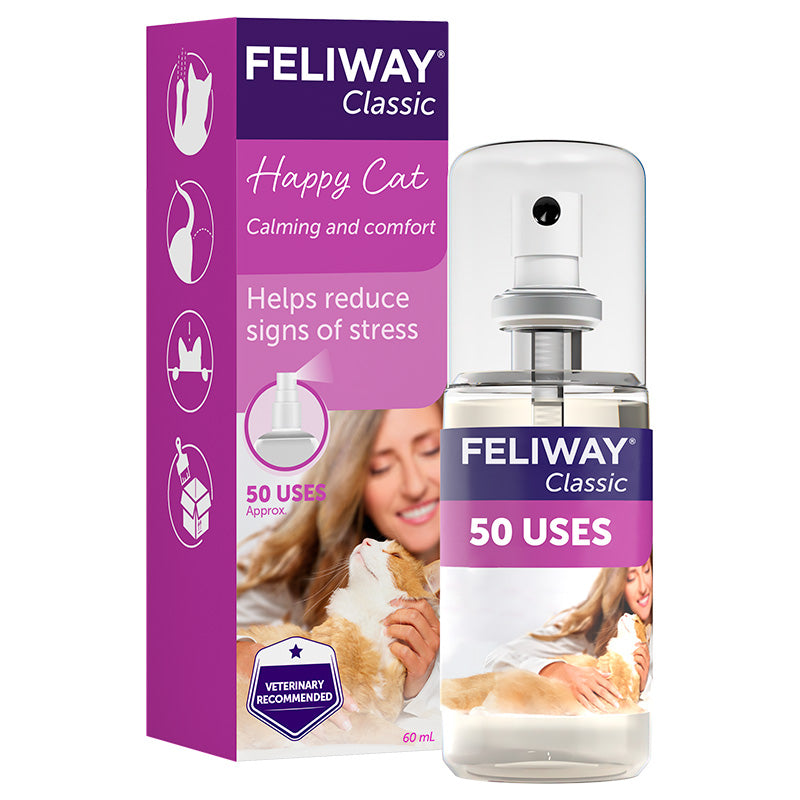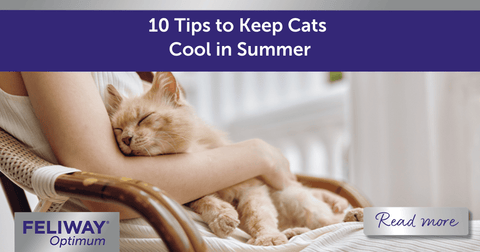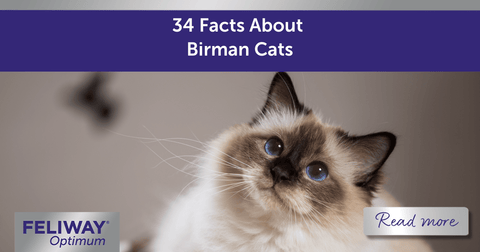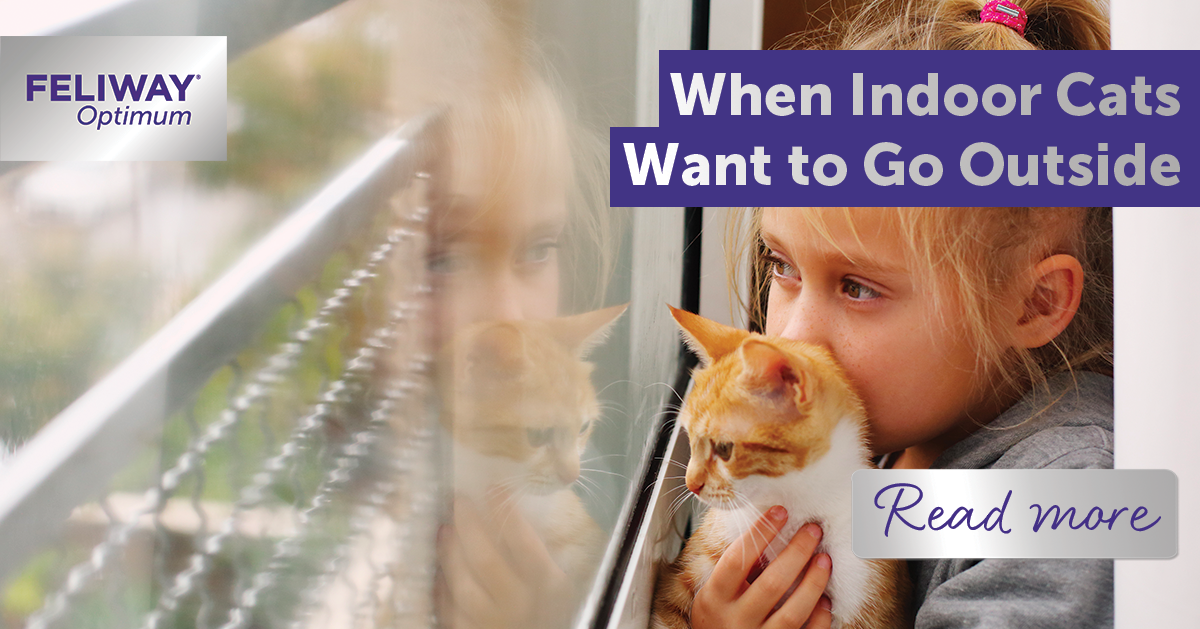
When Indoor Cats Want to Go Outside
Unfortunately, it is not possible for all cats to have access to the outdoors! From safety to preference and more - there are lots of reasons to keep a cat inside.
A recent research programme, published in Animals, reported that 41% of cats were kept indoors, the major reason being cat safety, with 98.7% of those owners making the decision because of road traffic.
Furthermore, 20% of cat owners in the US and Canada keep their cats indoors to protect them from other animals, such as local wildlife and dogs - but in Australia and New Zealand, cats were kept indoors to prevent them from catching other animals.
Many countries are seeing an increasing number of cats being kept indoors, because of increasing urbanisation, and this number is expected to increase.
Wherever you are - with a little support, your kitty can be a purrfectly happy indoor cat!
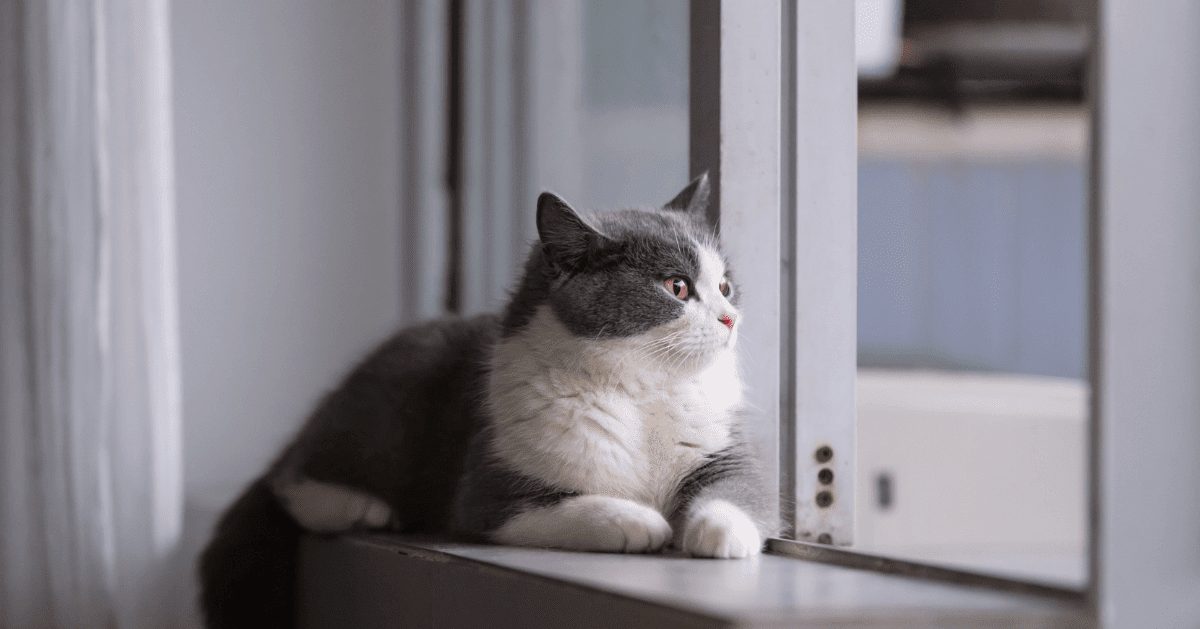
When Indoor Cats Want to go Outside
Domestic cats are closely related to their ancestors who spent their days exploring, hunting for food and resting. So if you want or need to keep your cat indoors, their natural instincts will still be telling them that they want to go out! There are lots of ways to help your cat adjust to indoor life however:
Supporting your indoor cat
Although the amount of space you have available is a consideration when deciding to keep your cat indoors, it is just as important to ensure that the space includes plenty of resources and stimulation to keep your cat active and happy.
Interactive play with your cat is essential in order to keep them mentally stimulated, so put aside regular times in the day to play. Types of play can include:
-
Mimicking the behaviour of a cat's prey. Use a wand-like stick with a toy bird or mouse and pull it around as if it is running to escape your cat - remember not to make it too easy, but do allow your cat to pounce and catch the prey, just as they would in nature.
-
A table tennis ball rolled along the floor, or bounced gently against the wall will keep your cat active.
-
A laser light shone on the floor or up to an accessible shelf, will give your cat something to chase.
-
Kibble hidden inside a puzzle toy will keep your cat happy for a while, especially if you are not around. Hide the toy behind the furniture so that your cat can sniff it out; this will develop their sense of smell and hunting instincts.
Remember to rotate the toys so that they don't get bored and always ensure they get a reward when they are successful at the end.
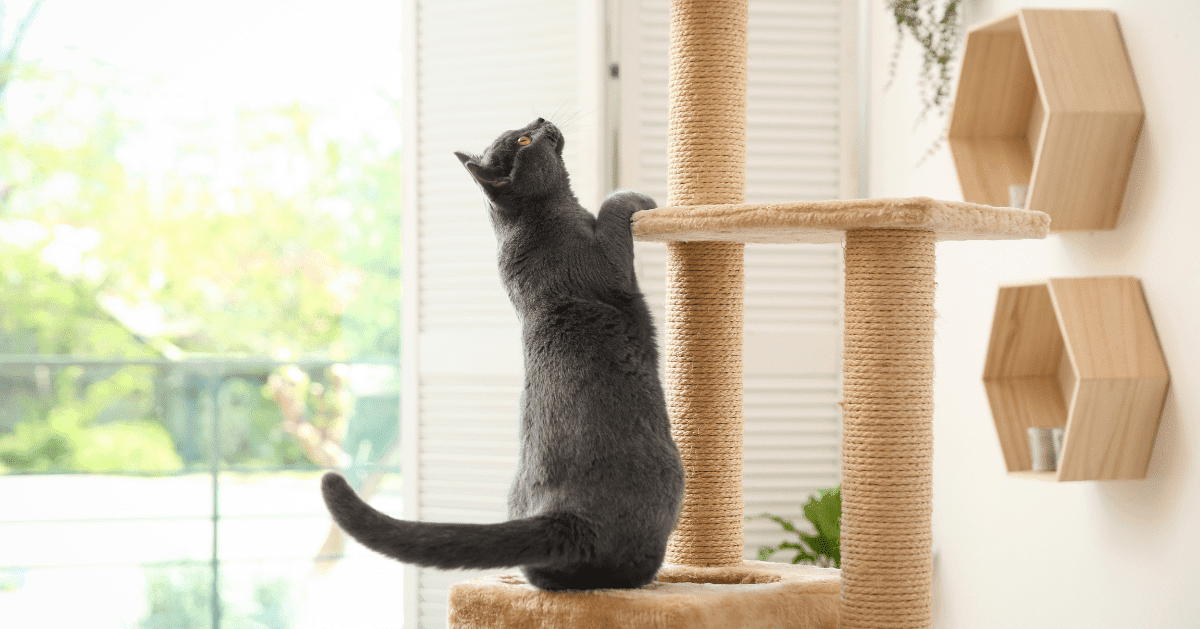
A scratching post is essential for an indoor cat, particularly if you want to deter them from scratching your doors or furniture. There are many variations of scratching posts available, with different heights, platforms, hiding places and ones with toys dangling to keep your cat amused. Make sure that you purchase the right one for your kitty and that it is tall enough to allow them to stretch and scratch. Scratching is an important part of a cat's routine as it keeps the outer layers of their claws filed down.
Climbing is a favourite pastime for a cat, so provide plenty of high up spaces, at different levels, so that they can leap and hide - just as they would outside. Tops of cupboards, high shelves, and window sills with curtains are all great for a cat to explore, escape and hide.
Provide an outdoor enclosure
You may be concerned about your cat wandering away from your garden and exploring the wider community. Cats can climb high fences, walls and trees, but providing a cat enclosure or cat fencing for them could be a good halfway option as they give your cat the sense and stimulation of being outside, but prevent them from exploring further afield.
However, make sure they have suitable natural stimulation within their pen/enclosure, like small bushes or plant pots to hind behind and access to other smells around the garden, like attractive edible flowers such as zinnias or marigolds, as well as catnip, cat thyme, oat grass, rosemary and bean sprouts. It's also a good idea to provide access to an elevated position so they can rest whilst keeping an eye on their surroundings.
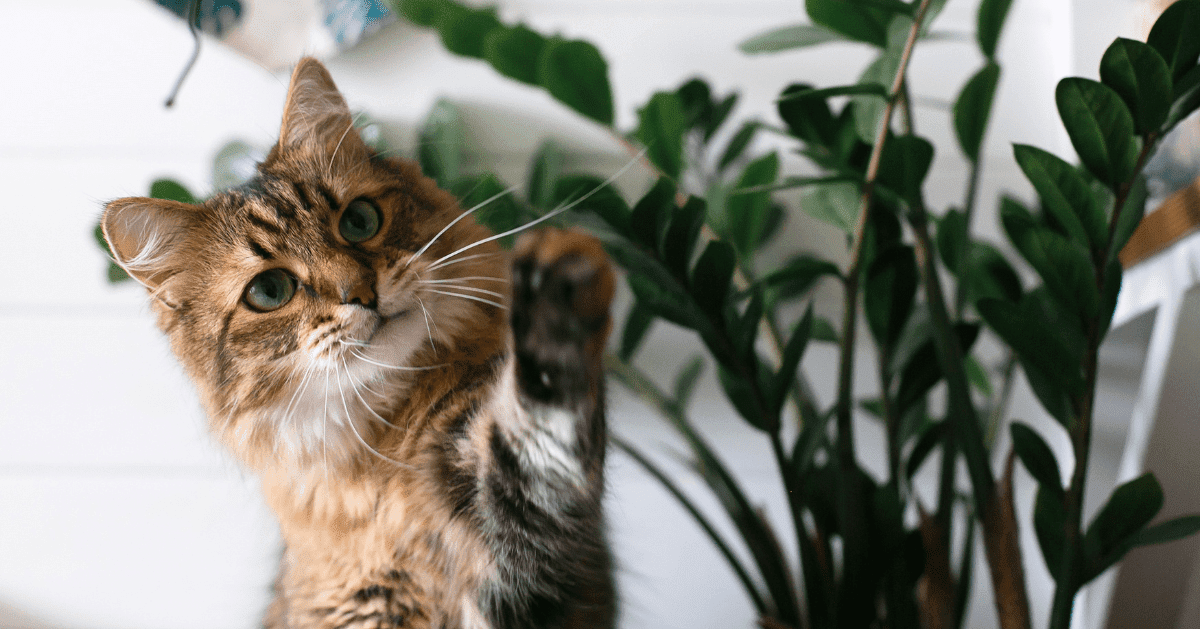
If you have limited space, you may consider a catio which can enclose space on a balcony or small patio that is linked to your house. This can also be adorned with cat plants hung up or scattered around the patio.
Use a harness and lead
Cats can settle well into an indoor lifestyle, but if you find your cat is showing signs of boredom or stress (over-grooming, aggression or being destructive) taking them outside on a leash/harness could be a good solution.
If you have a garden, the next best thing would be an outdoor enclosure for your feline friends. But for those without a garden space, you can also consider getting a harness and lead for your cat to allow them to explore the outside world. Taking them to your local park can help stimulate their natural explorative instincts, but it's important to avoid busy traffic areas as the noise of passing cars may scare your cat. You may even consider taking them to a quiet spot in a cat carrier; as long as your cat is used to using a cat carrier, this will avoid any stress on the way there.
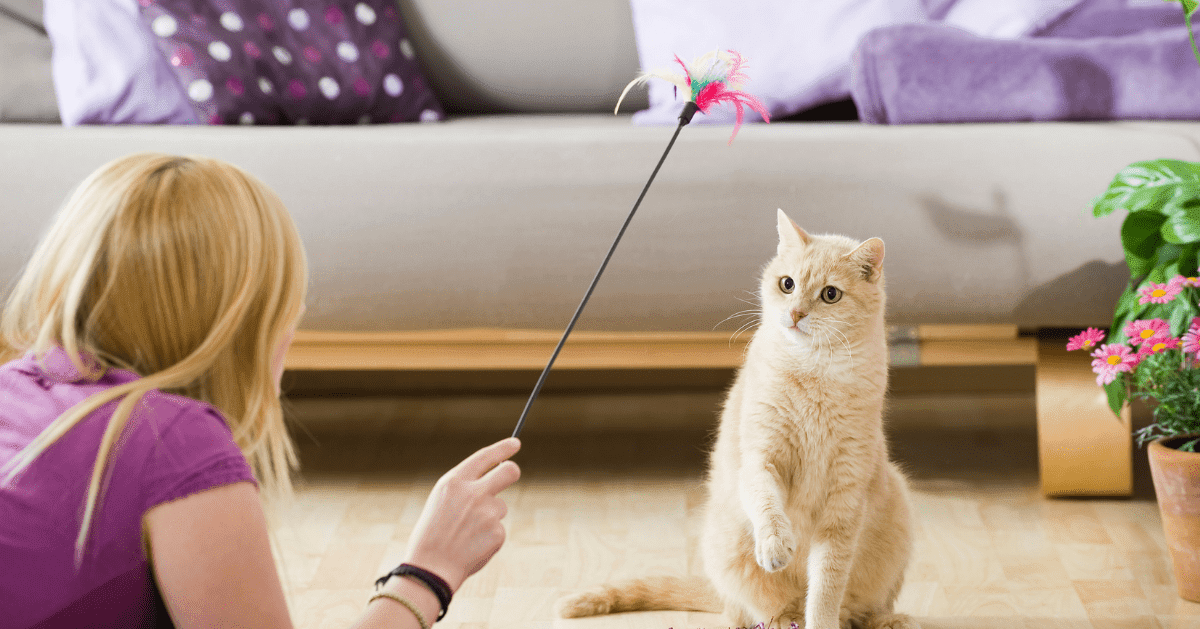
You will have to allow your cat to get used to the harness first, so try the harness on your cat while you are indoors - but do this gradually. We know how inquisitive cats are, so leave the harness close to where your cat normally wanders around the house, so that they can sniff and explore it in their own time.
When your cat is in a relaxed state (we suggest you avoid early in the morning, or in the evening, as this is when cats are at their most active) and once your cat has accepted the harness, gently lay it over their back, reassuring them at all times. If they are happy and accepting, you can then secure it - and remember to reward them at each stage so they have a good association with the harness.
It is important that the lead is attached to the harness and not to a collar.
Although your cat will not be able to climb trees or run through bushes while on a lead, they will be able to explore and get stimulation from the different scents, sounds and different things to watch, and hopefully this will fulfil their need for a taste of the outdoors.
Ensuring your indoor cat has plenty of exercise and stimulation is important. Using FELIWAY Optimum in your home will also help with any signs of stress while your cat adjusts to being indoors. 93% of cat lovers observed enhanced serenity when they have a FELIWAY Optimum diffuser plugged into the room where your cat spends most of its time.













